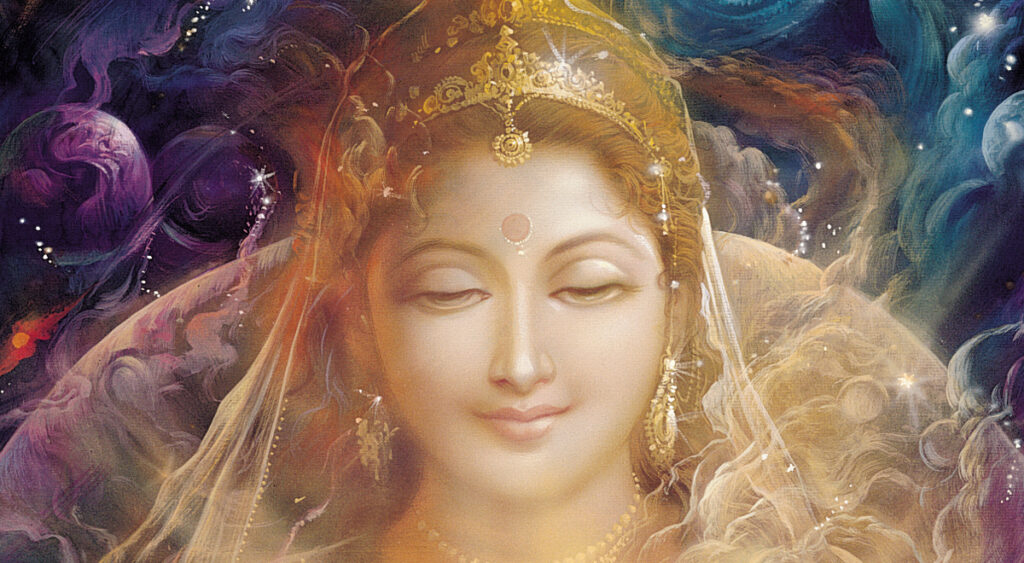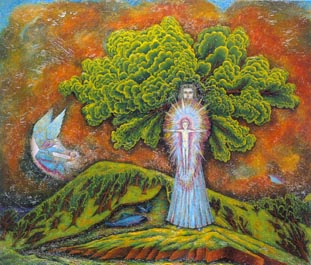Introduction
God as Divine Mother While the concept of God has predominantly been associated with a masculine figure, it is important to recognize the importance of the feminine aspect of the divine – God as a Divine Mother. In many religious and spiritual traditions, the notion of a nurturing, compassionate, and loving deity is embodied in the image of a mother. This blog delves into the significance and transformative power that arises from perceiving God through the lens of a Divine Mother.
The Symbolism of the Divine Mother
Throughout history, the divine feminine has been represented in various forms across cultures and religions. From Christianity’s depiction of the Virgin Mary to Hinduism’s worship of goddesses such as Kali, Durga, or Lakshmi, the image of a Divine Mother evokes compassion, unconditional love, and timeless wisdom. This imagery encompasses the nurturing qualities traditionally associated with motherhood, providing solace, guidance, and protection to her children.
The Attributes of the Divine Mother
By embracing the concept of God as a Divine Mother, we tap into a reservoir of qualities that reflect the intrinsic nature of the maternal energy. Compassion, unconditional love, forgiveness, and empathy are central to the nurturing essence of the Divine Mother. This perspective grants us the understanding that divinity doesn’t solely reside in power or authority, but also in gentleness and tenderness.

You can read our another post on Raksha Bandhan Celebration
Unconditional Love and Compassion
The Divine Mother’s unconditional love and compassion allow us to experience a sense of belonging and acceptance. In times of struggle and pain, the Divine Mother provides solace, healing, and a safe space to turn to, just as a human mother offers comfort to her child. This unwavering love invites us to embrace our vulnerability, encouraging us to grow, heal, and find strength in our weaknesses.
Wisdom and Intuition
The Divine Mother embodies infinite wisdom and intuition. Just like a mother instinctively knows what is best for her child, the Divine Mother’s guidance directs us towards a spiritual path that nurtures our growth and unfolds our highest potential. By tapping into our inner wisdom and trusting our intuition, we can access the profound connection to the Divine Mother and her boundless wisdom.
Fostering Balance and Harmony
As society tends to emphasize masculine qualities such as strength, control, and ambition, embracing the Divine Mother helps restore balance and harmony in our lives. The feminine energy encourages us to embrace qualities like vulnerability, intuition, and sensitivity, nurturing our emotional well-being and fostering connection and empathy with others. By balancing both the masculine and feminine aspects of the divine, we develop a holistic and enriched spiritual understanding.
More: Wanted to download Odishashop.com visit here

Writw A FAQ For God as Divine Mother: Embracing the Feminine Aspect of the Divine
What does it mean to embrace the feminine aspect of the divine as a divine mother?
Embracing the feminine aspect of the divine as a divine mother means recognizing and acknowledging the nurturing, loving, and compassionate nature of the divine in a maternal way. It involves understanding and connecting with the divine presence as a source of care, protection, and guidance, much like a loving mother.
How does embracing God as divine mother differ from traditional views of God as a male deity?
Embracing God as divine mother challenges traditional views of God as exclusively male and allows for a more inclusive understanding of the divine. By incorporating the feminine aspect of the divine, it brings balance and wholeness to our concept of divinity, as it recognizes and honors both the masculine and feminine qualities within God.
Why is embracing the feminine aspect of the divine important?
Embracing the feminine aspect of the divine is important because it counters the patriarchal imbalance that has dominated religious and spiritual traditions for centuries. By recognizing the feminine qualities of God, we can begin to heal and restore a sense of equality and reverence for both men and women in our spiritual journeys. It also offers a nurturing and compassionate understanding of the divine, providing comfort and solace to those who may have difficult relationships with traditional masculine representations of God.
How can embracing the feminine aspect of the divine impact our personal spiritual journeys?
Embracing the feminine aspect of the divine can deeply enrich our personal spiritual journeys. It allows us to tap into the nurturing and compassionate energies of the divine, fostering a sense of inner healing and self-acceptance. It also empowers us to embrace our own feminine qualities and honor the inherent wisdom and strength they bring, ultimately leading to a greater sense of wholeness and connection with the divine.
Are there specific practices or rituals that can help in embracing the feminine aspect of the divine?
There are various practices and rituals that can support embracing the feminine aspect of the divine. These may include meditation or prayer exercises that focus on connecting with the nurturing and loving nature of God, exploring and honoring the divine feminine through archetypal imagery, studying sacred texts and stories that highlight the role of the divine mother, and engaging in acts of compassion and service as a way to embody and express the feminine qualities within us. Ultimately, finding what resonates with you personally is key to creating a deep and meaningful connection with the feminine aspect of the divine.
Conclusion
Recognizing God as a Divine Mother allows us to deepen our connection with the divine spirit and expand our spiritual horizons. In embracing the nurturing and compassionate aspects of the feminine divine, we invite unconditional love, wisdom, and healing into our lives. By balancing both masculine and feminine energies, we create a harmonious and inclusive spiritual journey, embodying qualities that honor and celebrate the diversity and richness of the divine.
